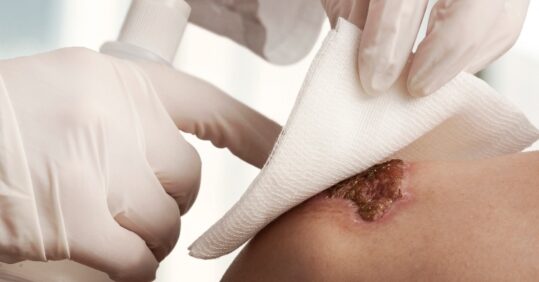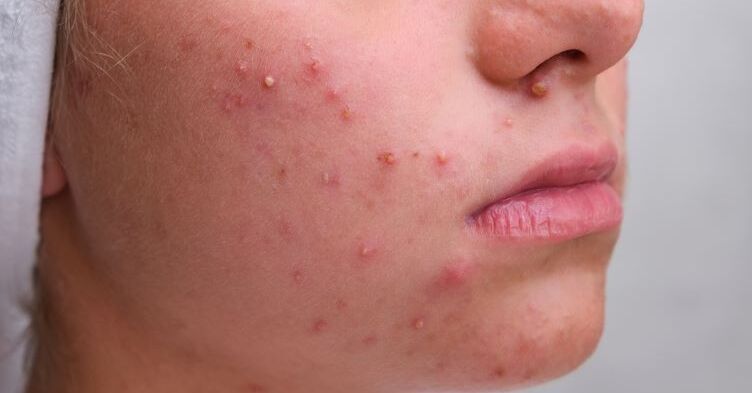Genetics could determine how a wound heals, according to new research.
Scientists at Texas Tech University have determined that people tend to get infected by specific bacteria depending on their genotype. The researchers believe the study to be a promising step to personalising wound treatment.
Related Article: CPD: Case by case – acute and emergency dermatology presentations
The study, published in the peer-reviewed medical journal PLOS Pathogens, looked at the link between patient genetics and chronic wound microbiome composition and healing. The collection of microbes, known as a microbiome, can determine how a wound heals and how long that process takes.
The researchers found that specific genes are associated with the number of bacteria and the abundance of common pathogens in a wound.
Caleb Phillips, an assistant professor in the Department of Biological Sciences at Texas Tech, who led the study, said: ‘We showed that there are identifiable locations in people’s genome where, depending on their genotype, they tend to get infections by specific bacteria.’
The research also showed that the more diversity within a wound microbiome, the less time it took to heal.
Related Article: Mythbuster: ‘This patient’s ulcer swab is positive so they need antibiotics’
Professor Phillips added: ‘A working hypothesis emerging from the research is that genetic differences influencing genes encoding the way our cells interact with the environment and each other are important for infection differences.’
The study was carried out on volunteer patients who had an infected wound or wounds on a lower extremity and were able to provide samples from the infected wound and cheek swabs. The researchers used microbiome profiling, genome fingerprinting, wet lab validation, imaging, and model development to analyse the samples and data.
Related Article: Top tips for supporting patients with acne
Co-researcher Craig Tipton, a doctoral student working alongside Professor Phillips, said the study is an important and promising step for patient care. ‘Personalised medicine is a current hot topic in modern healthcare, where the goal is to identify inherent differences within individuals that may cause them to be impacted differently by disease. Finding treatments that are well-suited and tailored to the individual and may contribute to better patient outcomes,’ he said.
The researchers hope that the study could be an early step in developing genomic predictive models that could help healthcare workers determine a patient’s risk of chronic wound infection by specific bacteria.






